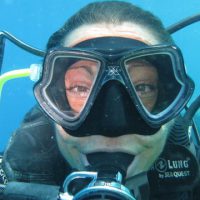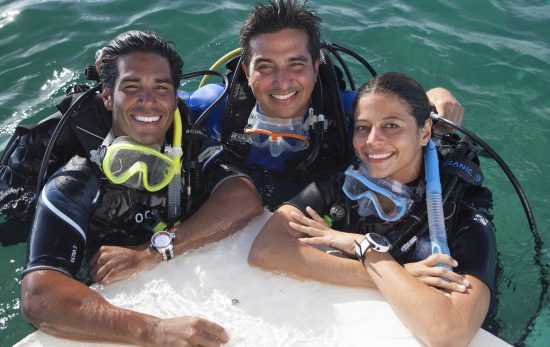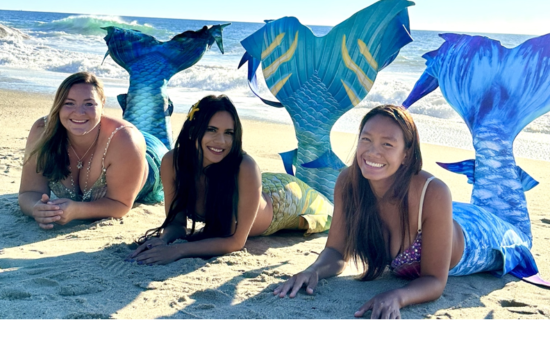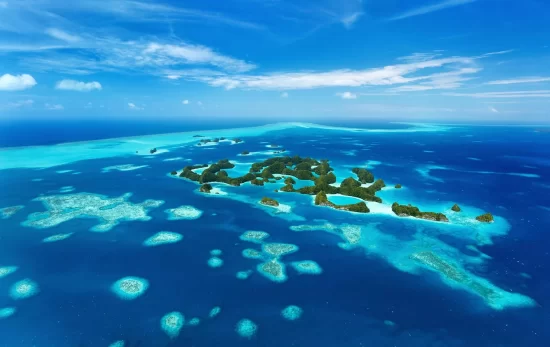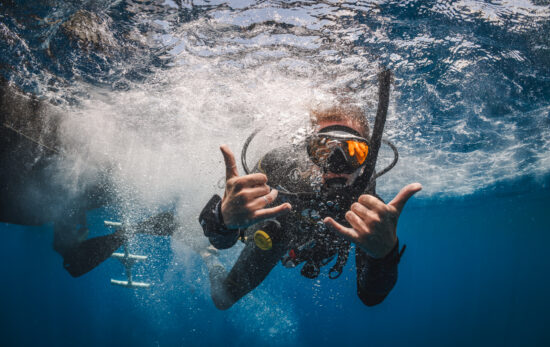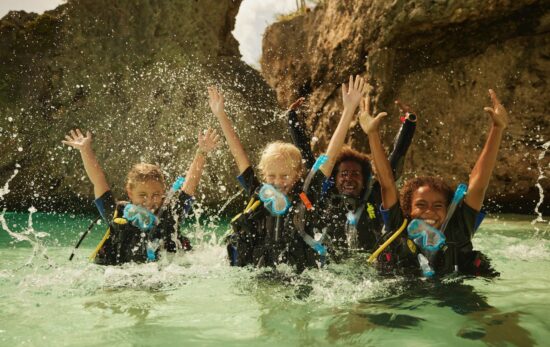There are multiple reasons for becoming a PADI Divemaster, and not just because you want a career in the dive industry!
It’s true that many people take the PADI Divemaster program to work as a Dive Guide or as a stepping stone to becoming a PADI Instructor. However, many people also take the PADI Divemaster because they simply want to improve their dive skills and knowledge, or they want to challenge themselves, and even for a fun thing to do during a gap year.
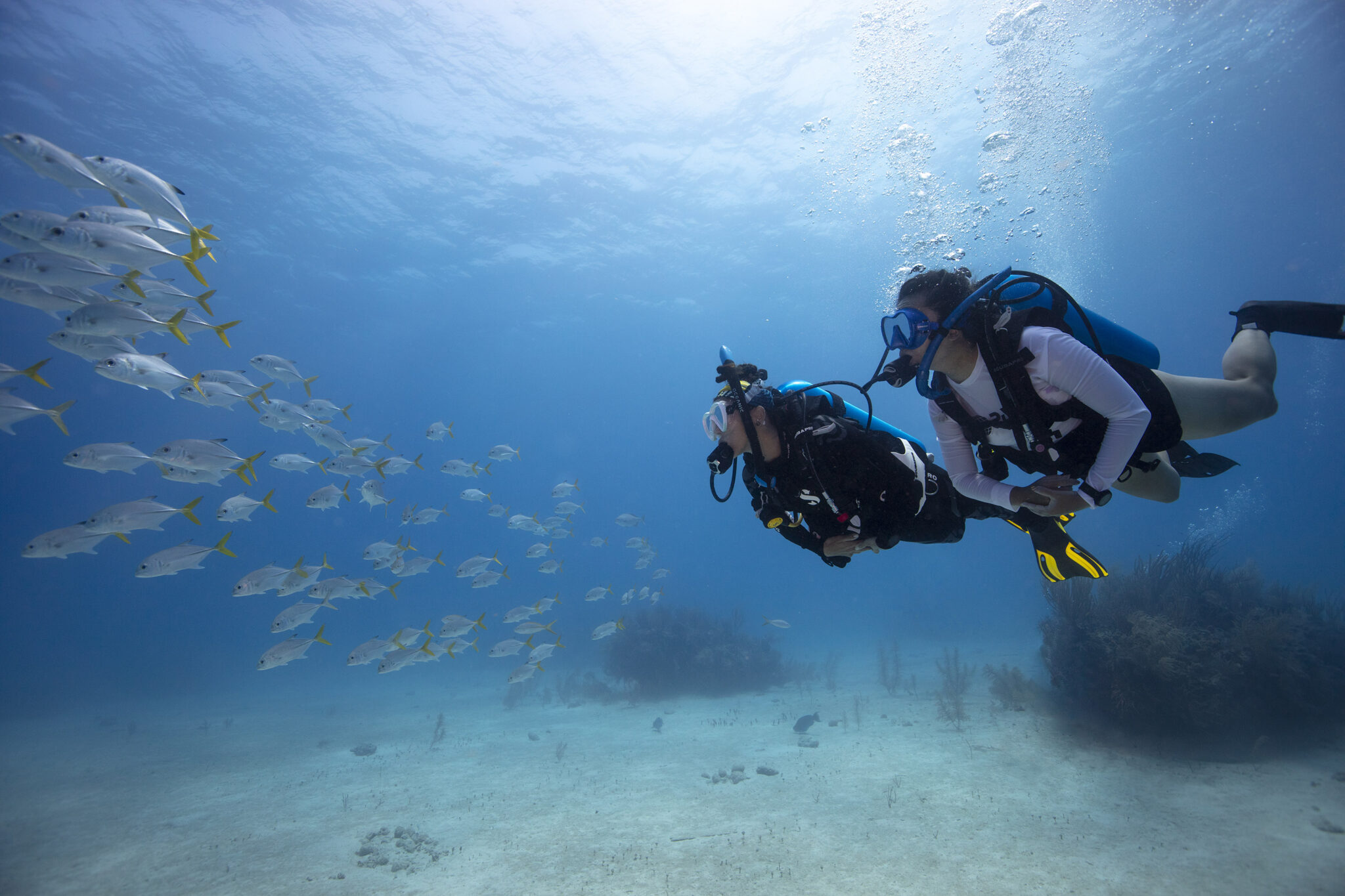
Step Up to the Challenge
Of course, PADI Divemaster training develops your dive skills and builds on your knowledge of dive theory, but there’s also much more to it. Many people report that their divemaster training has changed their career paths, their attitude to work, their confidence levels, and their lives!
During your divemaster training, among other tasks and exercises, you’ll also assist Instructors while they are teaching courses and help guide and influence students of a variety of courses. For many people, this is their first time in a role as a mentor – it’s incredibly rewarding and comes with responsibilities too. In turn, you won’t have an instructor/ student relationship with your Instructor as you have had during your courses up until now. Your Instructor will be your mentor, and you’ll be recognized as a soon-to-be professional diver.
You’ll be assessed physically, mentally and in dealing with real-life customers and students. Taking a PADI Divemaster course is a life-changing process, a big learning curve, and a lesson in self-awareness!
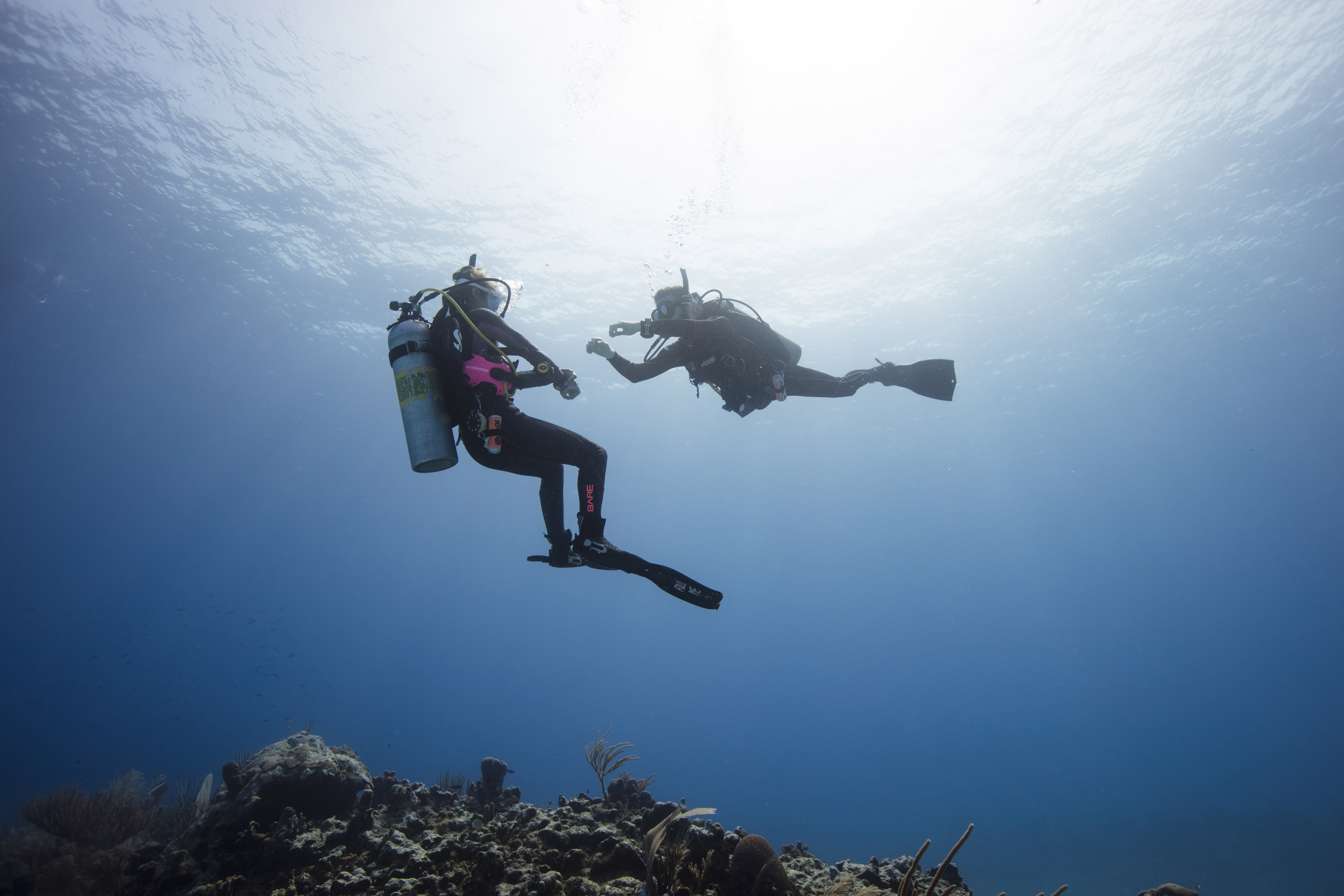
After Divemaster
There are many paths open for those who complete the PADI Divemaster course and pursue a career in the scuba diving industry. Of the two most common, the first option is to find a position as a Divemaster working at a dive center, dive resort, or on a liveaboard. The second most common option is to continue pro-development training, sign up for a PADI Instructor Development Course (IDC), and become a PADI Open Water Scuba Instructor. The PADI employment board is a handy tool for finding job positions worldwide.
For those who aren’t planning to work in scuba diving, it’s often a case of returning to work, school or taking on a new challenge with a newly developed sense of self-confidence, drive, and self-belief. However, in many cases, those with no intention to join the industry have a complete change of heart during their Divemaster training!
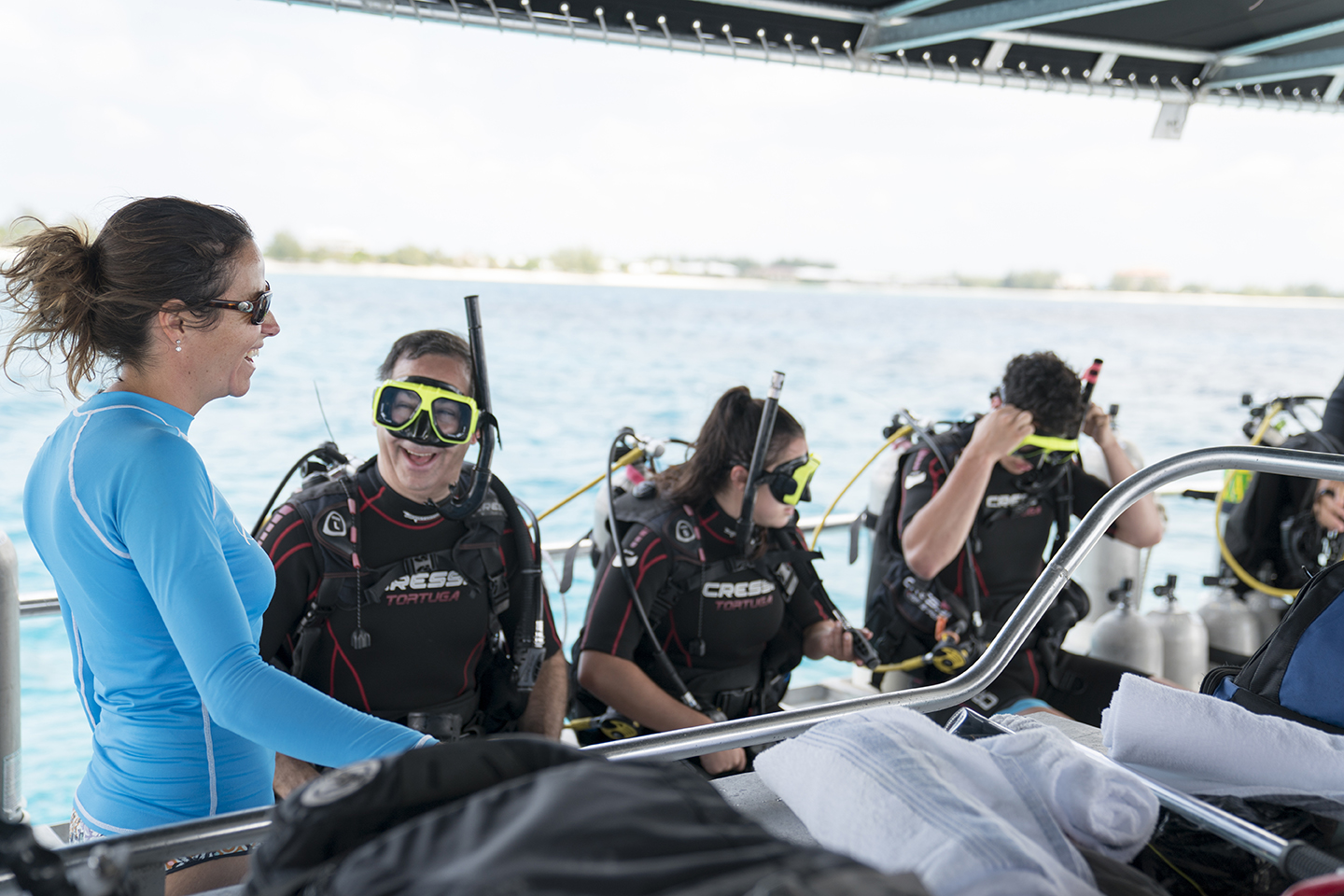
Why People go from Divemaster to Instructor
During Divemaster training, you’ll see the inner workings of a dive shop, and it’s hard for that not to influence you. You’ll gain first-hand insight into how your office could be on a beach, your daily commute being on a dive boat, and your office underwater! It’s no wonder why so many Divemaster candidates who are simply looking for a challenge or a fun way to spend time between schools or jobs decide to continue with their pro-development or go on to work as a Divemaster.
Whether you are thinking about becoming a career as a PADI Pro or whether you have other reasons, there are a few things you need to know about becoming a PADI Divemaster first…
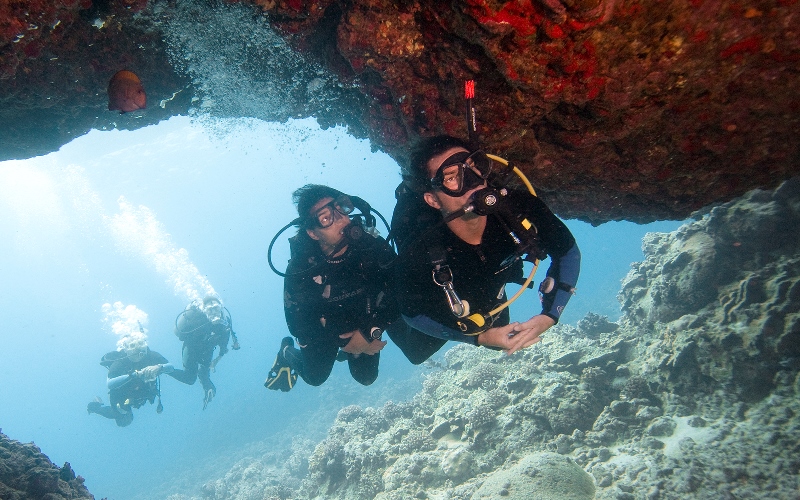
What Can a PADI Divemaster Do?
As a certified PADI Divemaster, you will be able to:
- Supervise both training and non-training-related activities by planning, organizing, and directing dives.
- Accompany PADI Scuba Divers on dives.
- Assist PADI Instructors during the training sessions for any PADI Diver course.
- Conduct the PADI Advanced Snorkeller course and PADI Discover Snorkelling program.
- Conduct the PADI Discover Local Diving experience.
- Conduct the PADI ReActivate program.
You can also complete a short qualification and become a PADI Discover Scuba Diving Leader, allowing you to independently conduct the PADI Discover Scuba Diving program in a swimming pool.
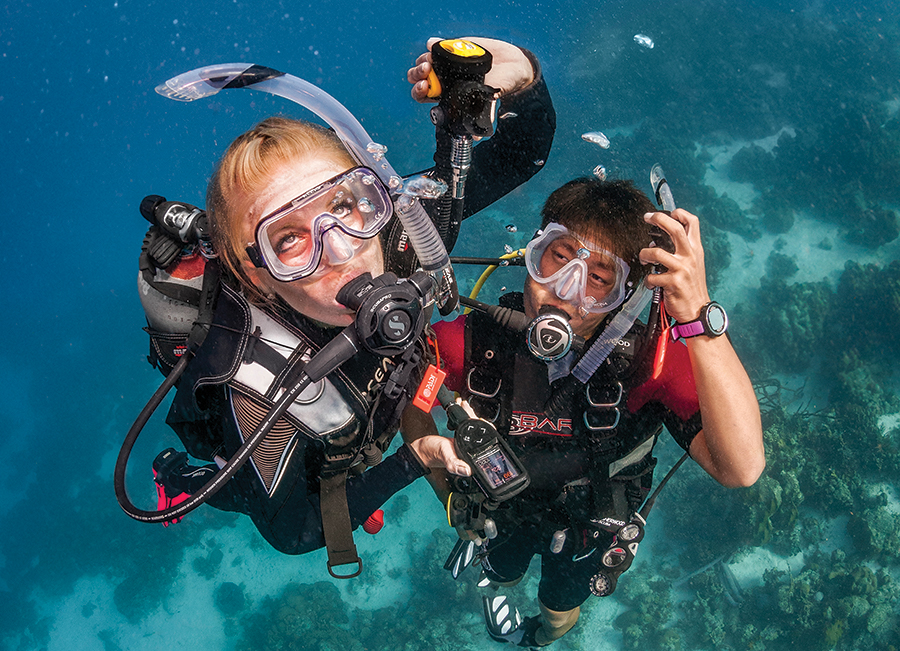
Other Points You Need to Know
To enroll in the PADI Divemaster course:
- You must be 18 years old and a certified Rescue Diver with EFR course completion in the last 24 months.
- You need 40 logged dives to begin Divemaster training, and you’ll need to have at least 60 logged dives to be certified upon completion.
- You also need to be fit for diving and have medical approval to scuba dive signed by a physician within the last 12 months.
- You need to be prepared for an experience of a lifetime, a lot of fun, and perhaps even a career you haven’t considered before!
If you are under the age of 18 but between the ages of 15 and 17, you can enroll in the PADI Junior Divemaster program, a sub-set of the PADI Divemaster course that will get you started on the journey to becoming a professional scuba diver.
Are you ready to start your journey to becoming a PADI Divemaster? Whatever your reasons for becoming a PADI Professional, check the link below to find a Dive Centre near you!
